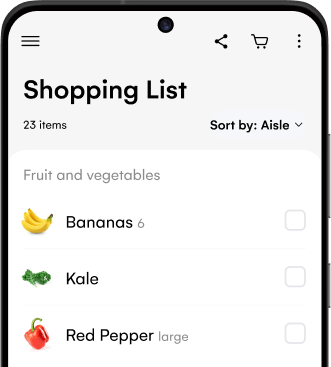Estimated reading time: 7 minutes
Managing your weight is a challenging process, but to stay on track, it’s important to be able to keep tabs on your progress. Stepping on the scales is the most common way people track their body composition progress. But scales aren’t always the best option, for neither accuracy nor self-esteem.
Not only is the old adage that ‘muscle weighs more than fat’ true, but there are many instances where people vastly improve their health or fitness without seeing a real difference in the number on the scale. Using only the scales to track progress can give you a skewed perspective on whether you’re progressing with your health and body composition goals.
Whether you are just tired of not seeing the needle shift on the scale or you want other ways to keep track of your weight, here are some alternatives to consider.
Tape measurements
Tape measurements are a great way to check if you are losing or gaining weight. They provide an objective measure of your body that matches weight loss or gain.
To use this method, you need to take measurements of certain parts of your body and compare them over time. You can take the measurements every fortnight or monthly.
While you can measure any area of your body to track progress, some of the most common measurements are
- Upper arms
- Bust
- Waist
- Hips
- Thighs
Taking measurements in centimeters can make it easier to track than inches because they are smaller increments – so little gains are easier to see.
You can also decide to record your numbers, so you can see your progress over time. Again, remember that certain areas might get bigger (like your arms or thighs) if you build significant amounts of muscle.

Clothes fit
How your clothes fit can also tell you if you are losing weight or bulking up.
If you find that clothes that were too tight are looser now, or you need to tighten your belt a notch or more, then it’s safe to say you are losing inches. You might also notice that they fit differently even if you wear the same size – e.g. where sleeves were always tight on t-shirts, they’re now more fitted around your waist.
You can also have a dream outfit that you work towards fitting into when you reach your goals.
Taking selfies
Research shows that taking selfies can help you keep track of your weight and even influence it. You’ve all seen those incredible progress shots on social media. So now there’s a good excuse to get in front of that mirror and strike a pose!
Taking regular (or even daily) pictures of yourself can help you see changes in your body over time.
When progress is gradual, it’s sometimes difficult to recognize small changes – but having a series of photos to look back on can make the changes more apparent.
And the bonus? You’ll have a full album of self-portraits showing your progress after a while.

Energy and stamina levels
Weighing too little or too much can affect your stamina. You can be too weak to lift weights, climb stairs or even run around with your family.
As you approach the right weight for your body, you may find that you are stronger and have more stamina than you did before.
This could help you:
- Climb steps faster
- Jog a mile faster
- Lift more kilograms
- Dance for longer
- Stand for longer
- Go longer distances
More stamina is a sign that your body is getting stronger. And it should be celebrated as a big success!

Quality of sleep
Another non-scale victory you can track is how well you sleep. If your sleep is more restful during a fitness program, then that’s definitely a good sign. You’re also likely to see improvement in conditions like sleep apnea with weight loss and improved health.
Experts advise that adults should sleep for seven to eight hours a day. During sleep, your body has time to heal and recover. So on your weight management journey, be sure to prioritize getting enough (and good quality) sleep.
Vital signs and lab work
Weighing too much is linked with increased blood pressure, a high heart rate, and even issues with blood sugar. Equally, weighing too little can cause low blood pressure and sugar, as well as an excessively low heart rate.
As you reach a healthy weight you may find that your vital signs improve. This could mean your blood pressure normalising, your heart rate getting slower or faster, and your breathing becoming slower and deeper.
Another way to track your improvements over time is to look at your lab work or blood tests. Physical activity, a healthy diet and normal weight can have an effect on the way your body manages energy—aka your metabolism.

This can affect certain chemicals in your blood including:
- Blood sugar
- Blood cholesterol
- Blood triglycerides
If your numbers were abnormal, and they start to drop toward normal, it’s a good sign that your efforts are working. You might even see improvements in things like iron or vitamin B levels in your body, as you improve your diet and consume a wider variety of vitamins and minerals.
Moods and emotional wellbeing
Weighing too much or too little can make you feel unhappy. You may be anxious about food, lack self esteem, or suffer depression or social anxiety because you don’t like the way you look.
As you get closer to your desired weight, you may notice your mood getting better. You may find that you feel more calm and even happier. Exercise in particular offers many mental health benefits, and prioritizing regular exercise in your wellness journey could help to boost your mood.

Tracking physical activity
Just like food, the amount of physical activity you get every day can affect your weight as well as your health. So instead of watching the scales, you can track how much activity you get in each day and let the scale take care of itself.
You can decide to schedule a daily fitness session and work your way up to more minutes over time. Or you can get a fitness tracker that measures how many steps you take each day.
Experts advise that about 25 minutes of exercise a day or 8000-10000 steps each day can help you get the benefits – but any exercise schedule which is sustainable and which you can stick to will be a huge help. Why not try strength training, yoga, gentle cardio, or even a HIIT class?
The scales aren’t the only way
If you feel that weighing scales aren’t the best way to track your wellness and fitness efforts, you don’t need to be stuck. There are plenty of other ways to track your progress, note changes in your body and stay motivated.
Taking selfies, counting your steps or just measuring yourself, are just some of the ways to measure your progress. And for a more holistic picture, you can decide to try a combination of methods.
Whatever methods you choose to use, remember that consistency and gradual improvements will serve you more in the long run than any quick fix.

